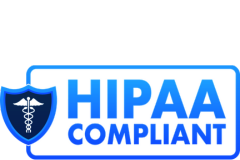Proper hydration is vital for everyone, but it becomes increasingly important as we age. For older adults, maintaining adequate hydration is crucial for overall health, energy levels, and the prevention of various health issues. Here’s why staying hydrated is essential and some tips on how to ensure you get enough fluids throughout the day.
Why Hydration is Crucial for Seniors
1. Maintains Body Functions
Water plays a key role in many bodily functions, including digestion, circulation, and temperature regulation. Adequate hydration helps ensure that these processes work efficiently, which is especially important for seniors who may be more susceptible to health issues.
2. Prevents Dehydration-Related Complications
Older adults are at a higher risk of dehydration due to a decrease in the body’s ability to conserve water, a reduced sense of thirst, and the use of certain medications. Dehydration can lead to serious complications such as urinary tract infections, kidney stones, and even confusion and disorientation.
3. Supports Cognitive Function
Proper hydration is linked to cognitive function and mood. Dehydration can cause symptoms such as confusion, dizziness, and headaches, which can be mistaken for other conditions common in older adults. Staying hydrated helps maintain mental clarity and overall cognitive health.
4. Aids in Digestion and Prevents Constipation
Water is essential for digestion and the prevention of constipation, a common issue among seniors. Adequate fluid intake helps keep the digestive system functioning smoothly, reducing discomfort and promoting regular bowel movements.
Tips for Staying Hydrated
1. Drink Water Regularly
Make it a habit to drink water throughout the day, even if you don’t feel thirsty. Aim for at least eight 8-ounce glasses of water daily, but remember that individual needs may vary based on factors such as activity level and overall health.
2. Incorporate Hydrating Foods
Many fruits and vegetables have high water content and can contribute to your overall hydration. Include foods such as watermelon, cucumbers, oranges, and strawberries in your diet to help stay hydrated.
3. Monitor Your Fluid Intake
Keep track of how much water you drink each day. Using a water bottle with measurements can help you monitor your intake and ensure you meet your hydration goals.
4. Set Reminders
Set reminders on your phone or use an app to prompt you to drink water regularly. This can be especially helpful for those who tend to forget to hydrate throughout the day.
5. Limit Dehydrating Beverages
Beverages like coffee, tea, and alcohol can have a diuretic effect, leading to increased fluid loss. While it’s okay to enjoy these in moderation, be mindful of their potential to dehydrate and compensate by drinking extra water.
6. Flavor Your Water
If plain water isn’t appealing, try adding natural flavors. Infuse your water with slices of lemon, lime, cucumber, or a few berries to make it more enjoyable and encourage you to drink more.
7. Choose Hydrating Alternatives
In addition to water, other hydrating beverages such as herbal teas, milk, and 100% fruit juices can help you stay hydrated. Just be mindful of added sugars in some juices.
Staying properly hydrated is essential for maintaining overall health and well-being, particularly for older adults. By incorporating these tips into your daily routine, you can ensure you are getting enough fluids to support your body’s functions, prevent dehydration-related complications, and maintain cognitive and digestive health.
Remember, if you have specific health conditions or concerns, it’s always best to consult with your healthcare provider to determine the appropriate amount of fluids for your individual needs.
Stay hydrated, stay healthy, and enjoy a vibrant life!




